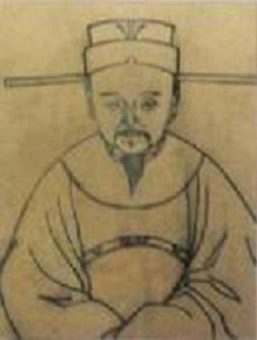Unit 21
Text
三(sān) 傳(zhuàn) 者(zhě),有(yǒu) 公(gōng) 羊(yáng),
有(yǒu) 左(zuǒ) 氏(shì),有(yǒu) 穀(gǔ) 梁(liáng)。
經(jīng) 既(jì) 明(míng),方(fāng) 讀(dú) 子(zǐ),
撮(cuò) 其(qí) 要(yào),記(jì) 其(qí) 事(shì)。
Vocabulary
(1)三傳(sān zhuàn):Three commentaries which explain and expand the meanings of The Spring and Autumn Annals, i.e. The Commentary of Zuo, The Commentary of Gongyang, and The Commentary of Guliang.
(2)者(zhě):a function word, an auxiliary word
(3)公羊(gōng yáng):The Commentary of Gongyang, first written by Gongyang Gao in the Warring States Period, later revised and finalized by Gongyang Shou and Hu Wu Sheng during the Han Dynasty. It is mainly presented in a question-and-answer format.
(4)左氏(zuǒ shì):The Commentary of Zuo, also titled as The Spring and Autumn of Zuo, written by Zuo Qiuming of Lu, a monarch during the Spring and Autumn Period. It mainly includes narratives and uses historical events to expound on The Spring and Autumn Annals.
(5)榖梁(gǔ liáng):The Commentary of Guliang, written by Guliang Chi during the Warring States Period.
(6)經(jīng):Classics; books used by Confucianism as a basis of study. Ancient Chinese books are divided into four categories: Jing (classics), Shi (history), Zi (thoughts of various schools and scholars), and Ji (collections).
(7)既:already, since, as
(8)方(fāng):(not until…) then
(9)子(zǐ):Books by various schools and scholars; one of the four categories of ancients books.
(10)撮(cuò):summarize
(11)其(qí):books of thoughts from various schools
(12)要(yào):key points
(13)記(jì):memorize, learn by heart
Text Explanation
There are three commentaries on The Spring and Autumn Annals, i.e., The Commentary of Gongyang, The Commentary of Zuo, and The Commentary of Guliang. Only after the books of Confucianism are thoroughly understood, should one start to read books from various schools of thought by summarizing key points and memorizing instances.
Discussion Questions
1. In order to understand how to get along with others and handle matters, ancient Chinese read what they understood they should read, such as books from Confucianism or thoughts of various schools. Nowadays, many people only read literature for “pleasure,” such as comics, magazines, or novels. What is wrong with reading only for pleasure? What is the advantage of having required reading?
2. What book or story impressed you the most? Please explain.
Story
Wei Broken Three Times
In his latter years, Confucius liked to read The Book of Changes. There was no paper in the Spring and Autumn Period, so words were written on strips of bamboo. A book contained many bamboo strips that were strung together by cowhide string (called “Wei”). It was usually rolled while in storage, and then opened when being read. Since The Book of Changes had vocabulary and content that were difficult to understand, Confucius would flip back and forth through the book in order to comprehend its meanings.
Reading this way, Confucius broke the cowhide string several times. Even so, Confucius was still not satisfied with his understanding of the book. He said, “If I can live longer, I may understand its writing and content more.”
“Wei broken three times,” is a saying used to describe that one studies assiduously and is diligent.
Half Volume of the Analects of Confucius
Zhao Pu was originally Zhao Kuangyin’s subordinate, who held the role of an officer. In 960 A.D., Zhao Kuangyin led the army north. When the army arrived at Chen Qiao, Zhao Pu devised a stratagem to start the Chen Qiao mutiny. After that, Zhao Kuangyin became Emperor and established the Song Dynasty. He was called Emperor Song Taizu. Zhao Pu assisted Emperor Song Taizu in unifying the whole nation, and Zhao Pu himself then became Prime Minister. After Emperor Song Taizu died, his younger brother Zhao Kuangyi succeeded the throne; he was called Emperor Song Taizong.
In the period of Emperor Song Taizong’s rule, Zhao Pu was still Prime Minister. Some people told Song Taizong that Zhao Pu had shallow knowledge and that he had only read The Analects of Confucius, and that reading only one book was inappropriate for someone who was a Prime Minister.
Once, Song Taizong asked Zhao Pu, “Some people have said that you have only read The Analects of Confucius, is that true?”
Zhao Pu replied honestly, “What I know is indeed not more than this book. In the past, I used half of the volume to assist Taizu to pacify the kingdom. Now, I also use half of the volume to help Your Majesty, and the result is that there is peace throughout the country.”
Later, when Zhao Pu died of illness, his family opened his book box and indeed found only twenty chapters of The Analects of Confucius inside.
“Half volume of The Analects of Confucius,” is a saying used in order to emphasize the profoundness of Confucian thoughts.
Writing Reflection
1. There was no paper in the times of Confucius. What was The Book of Changes written on?
2. Why was the cowhide string of The Book of Changes of Confucius broken several times?
3. Why was Zhao Pu able to make such great contributions to the Song Dynasty? What did he have?
4. Based on the above story, what do you think is the purpose of studying? To cultivate ability, or disposition and thought?
Pages: 1 2 3 4 5 6 7 8 9 10 11 12 13 14 15 16 17 18 19 20 21 22 23 24




